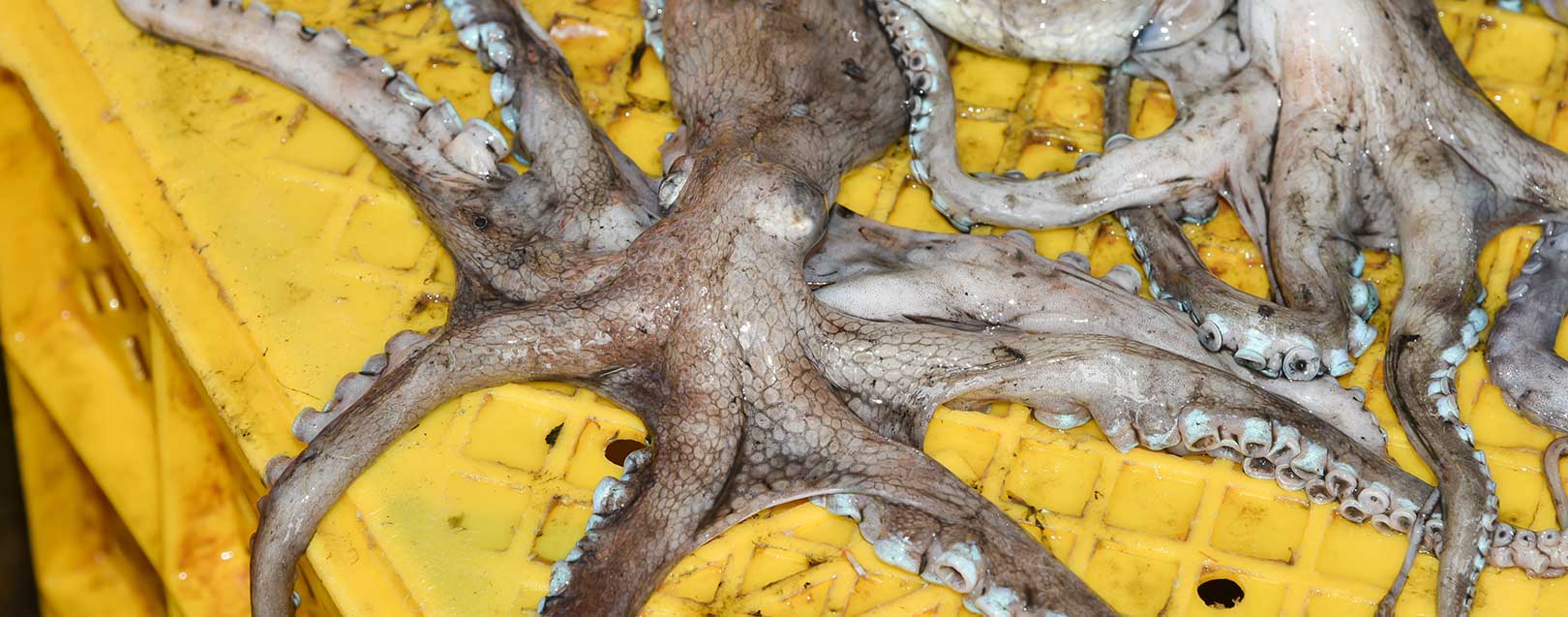
Europe’s sluggish buying hits Indian octopus exports
The Dollar Business Bureau
India could not encash 93 percent increase in availability of octopus in 2015-16, when compared to the previous year. This is mainly due to the sluggish demand in the European markets and stiff competition from the countries of South-East Asia.
More than 11,409 tonnes of octopus were caught in Indian sea shores in 2015-16, as per the data from the Central Marine Fisheries Research Institute (CMFRI). The domestic market for octopus is very less, and majority of its stock needs to be exported to other countries. Indian octopus’ exports account over Rs.200 crore in a year, mostly found in between August and November.
Bimaldas, Partner of Emerald Exports and Imports said that the Europe’s purchasing capacity has come down. It is eyeing the markets of China and other Southeast Asian nations, which are supplying octopuses at cheaper rates. Cyprus, Greece, Italy, Spain and Portugal, and also Japan are the major markets for India’s octopus exports.
Though octopus, found more in numbers this year, the revenues have not increased according to the exporters. This is because of 50 percent dip in the prices at $3 per kg. Indian seafood processors exported huge quantities to China and Vietnam in the raw form as there is less demand from Europe. Later on, these shipments are again exported to other at better prices.
"The government has withdrawn 'Vishesh Krishi Grama Udyog Yojana' benefit for octopus which made us lose the edge in competing with Southeast Asian countries," said Alphonse Joseph, MD of Capithan Exporting Company, which exports about 1,000 tonnes of octopus annually. He further said that margins have come down as they need to pay around Rs.100 per kg to fishermen.
Europeans mostly prefer octopuses from Southeast Asian countries - Vietnam and Thailand - as they are whiter when compared to those from India. The size of baby octopus from our country is smaller than from Southeast Asia.
“Though the octopus haul increased in India, there was a decline in a particular variety found near Tuticorin and Kanyakumari shores,” said Joseph.






 to success.
to success.